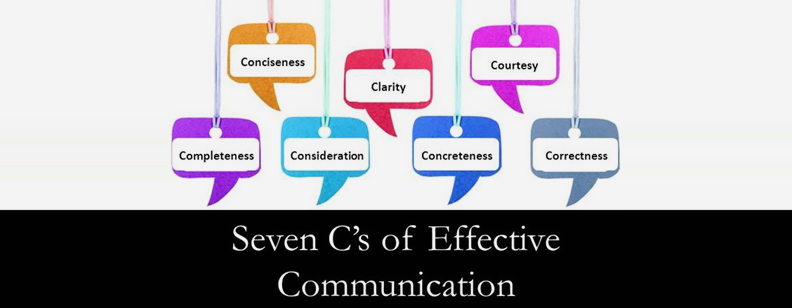Nowadays correspondences become more and more popular in spite of daily communications, especially foreign trade, when a high-quality correspondence always bring good effects and outcomes which may be unexpected. For this purpose, it’s quite necessary to master the writing skills of correspondences among which 7C principles are the core principles for writing correspondences and accordingly recommended to apply.
What are 7C principles? They refer to 7 words which begin with C, i.e. Completeness, Correctness, Concreteness, Clearness, Conciseness, Courtesy and Consideration used to evaluate on word selection, sentence structure, content, tone, altitude, etc. of the correspondences. We make clear explanations of the 7C principles as follows:
1. Completeness.
When writing correspondences, the writer should take full account of the current situations and state clearly matters and issues encountered, namely narrate the whole thing completely, that is the source of the completeness principle. For example:
1) We have established through our bank an irrevocable L/C in your favor. (Worse)
2) We have established through our bank an irrevocable L/C in you favor which will reach you in June 15 and remain valid until the end of June. (Better)
Obviously, the 2) is more complete than 1) with more information contained to indicate the date of arrival and duration of the credit, which should be in accordance with the expectations of exporters in a better way.
2. Correctness.
It’s undoubtedly the most important to have this principle in correspondences, especially business correspondences. In case of inaccuracy, misunderstanding or even trade conflicts will be easily resulted in, as will destroy your desired orders or commodities. Accordingly, correspondences should be correct in every aspect, including format, grammar, spelling, terminology, etc. For example:
1) This goods’ price is high. (Worse)
2) This article is high in price. (Better)
No more analysis and explanation will be given to this example, which is quite clear to use the 2) but not 1).
3. Concreteness.
The concreteness is also important in writing correspondences for us. The key words in the business correspondences must be concrete and contain sufficient information you want to clarify. For examples:
A significant loss should be replaced by a 55% loss;
In the near future should be replaced by Friday midnight.
4. Clearness.
In our practice, economic disputes due to ambiguous statement are common. Thus, every matter and issue mentioned in the business correspondences should be clarified clearly to avoid ambiguity or misunderstanding. For example:
1) This product is absolutely the best one in the market. (Better)
2) This product is the best one we can supply. (Worse)
1) gives us more clear information we need, but does not lead to misunderstanding. 2) leaves much space for suppliers, which is unfavorable for buyers and may lead to their wrong understanding. For another example:
1) The credit will remain valid the end of this month. (Worse)
2) The credit will remain valid until Oct. 31, 2013. (Better)
In case of time, the writer must give very specific time, as is very important in business correspondences.
5. Conciseness.
In the business correspondences, least words should be used to explain most complete information, which will save time for both parties but give clear and desired information to the other party without impression of procrastination. For examples, “now” is commonly used to replace “at the present of”, “for” in lieu of “for the purpose of”, etc.
6. Courtesy.
It’s indispensable to be polite and courteous in tone, words and expressions in business correspondences. Friendly wording and tone may arouse good effects and save a lot of costs. With rude and blunt expressions, it’s difficult to gain the feelings of the other party and achieve good effects in spite of your carelessness. For example:
1) You are requested to ship our goods without any delay. (Worse)
2) Your prompt shipment of our order will be highly appreciated. (Better)
7. Consideration.
When writing business correspondences, we should always keep in mind the receiver we are writing to, try to put yourself in his or her place to give consideration of his or her wishes, demands, interests and desires. Meanwhile, we should emphasize “you” rather than “I” or “We”.







